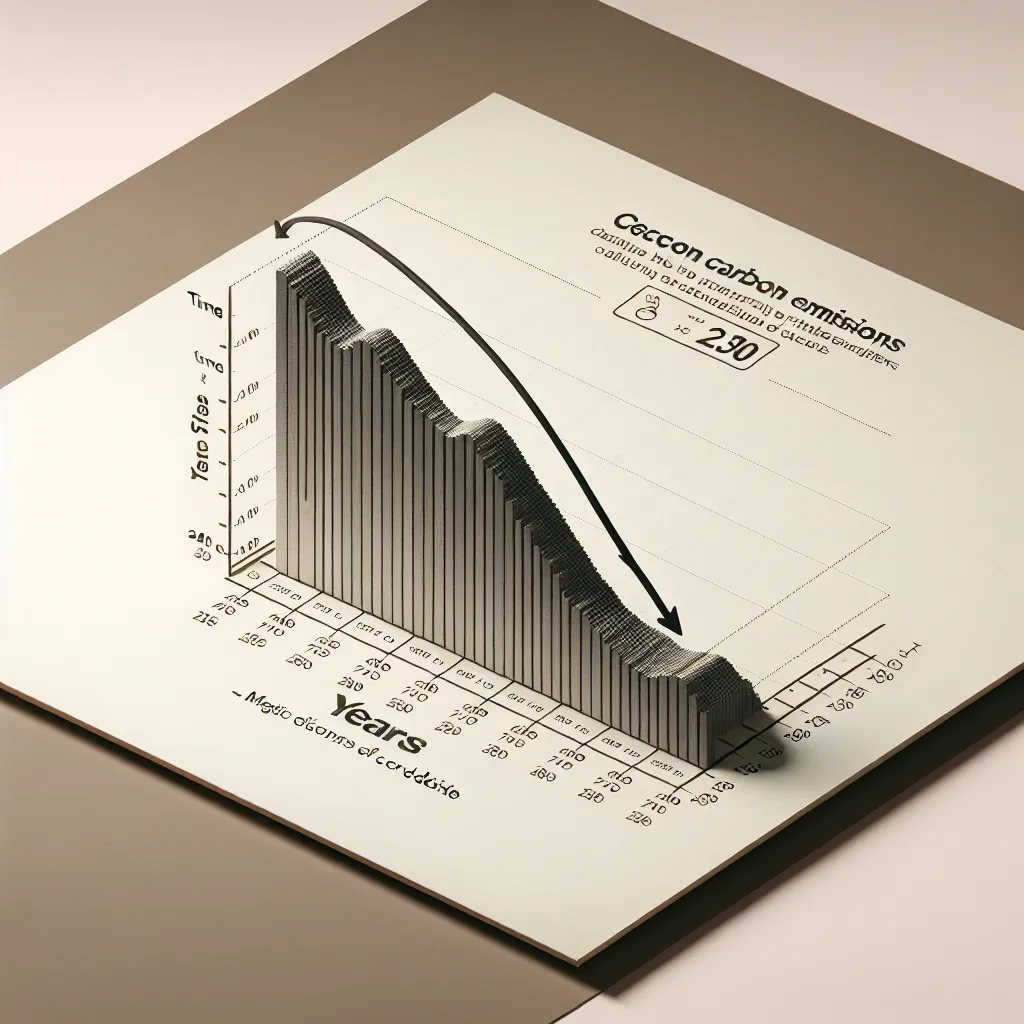Carbon tax has become an increasingly popular topic in IELTS Writing Task 2 exams. Based on recent trends and the growing global focus on climate change, it’s highly likely that questions related to carbon taxation will continue to appear in future tests. Let’s examine a relevant question that has appeared in past IELTS exams and provide sample essays for different band scores.
Nội dung bài viết
Some people believe that governments should implement a carbon tax to reduce emissions. To what extent do you agree or disagree?
Analyzing the Question
This question asks for your opinion on whether governments should implement a carbon tax as a means to reduce emissions. It’s important to:
- Clearly state your position
- Provide reasons and examples to support your view
- Consider potential counterarguments
- Conclude by restating your position
Let’s look at sample essays for different band scores.
Sample Essay for Band 8-9
Carbon dioxide emissions are a major contributor to global warming, and many experts argue that implementing a carbon tax is an effective way to reduce these emissions. I strongly agree that governments should introduce such a tax, as it can drive significant changes in both industrial practices and consumer behavior.
Firstly, a carbon tax would incentivize companies to reduce their carbon footprint. By making it more expensive to emit greenhouse gases, businesses would be motivated to invest in cleaner technologies and more efficient processes. For example, power companies might accelerate their transition from coal to renewable energy sources, while manufacturers could prioritize the development of low-emission production methods. This shift would lead to a substantial reduction in overall emissions across various industries.
Moreover, a carbon tax would influence consumer choices towards more environmentally friendly options. As carbon-intensive products become more expensive due to the tax, consumers would be encouraged to opt for greener alternatives. This could lead to increased demand for electric vehicles, energy-efficient appliances, and sustainably produced goods. Over time, these changes in consumer behavior could significantly reduce the carbon footprint of households and individuals.
Critics may argue that a carbon tax could harm economic growth and disproportionately affect lower-income households. However, these concerns can be addressed through careful policy design. Governments could use the revenue generated from the tax to support green initiatives, invest in public transportation, or provide rebates to low-income families. This approach would help mitigate any negative economic impacts while still achieving the primary goal of reducing emissions.
In conclusion, I firmly believe that implementing a carbon tax is a necessary and effective step for governments to take in combating climate change. By creating financial incentives for both businesses and consumers to reduce their carbon emissions, such a policy can drive meaningful change towards a more sustainable future. While careful implementation is crucial, the potential benefits of a carbon tax far outweigh the challenges.
(Word count: 309)

Analysis of Band 8-9 Essay
This essay demonstrates the characteristics of a high-scoring response:
- Clear position: The writer strongly agrees with implementing a carbon tax.
- Well-developed arguments: Each paragraph focuses on a specific point (industrial change, consumer behavior, addressing counterarguments).
- Relevant examples: The essay provides concrete examples to illustrate its points.
- Cohesive structure: Ideas flow logically, with clear transitions between paragraphs.
- Advanced vocabulary: The essay uses sophisticated language accurately (e.g., “incentivize,” “disproportionately,” “mitigate”).
- Grammar and sentence structure: It demonstrates a wide range of grammatical structures used accurately and flexibly.
Sample Essay for Band 6-7
Many people think that governments should use a carbon tax to help reduce emissions. I agree with this idea because it can help solve the problem of climate change.
One reason why a carbon tax is a good idea is that it can make companies reduce their pollution. When businesses have to pay more for releasing carbon dioxide, they will try to find ways to pollute less. For example, factories might start using cleaner energy like solar power instead of burning coal. This can lead to less pollution overall.
Another benefit of a carbon tax is that it can change how people behave. If products that cause a lot of pollution become more expensive because of the tax, people might choose to buy things that are better for the environment. For instance, they might buy an electric car instead of a regular car that uses petrol. This can help reduce emissions from many people.
However, some people worry that a carbon tax might make life more expensive, especially for poor people. This is a valid concern, but governments can use the money from the tax to help people who need it. They could give some money back to poor families or use it to make public transport better. This way, the tax can still help the environment without causing too many problems.
In conclusion, I believe that a carbon tax is a good way for governments to reduce emissions. It can make both companies and people change their behavior to be more environmentally friendly. While there might be some challenges, the benefits of fighting climate change are very important.
(Word count: 276)
Analysis of Band 6-7 Essay
This essay demonstrates the characteristics of a mid-range response:
- Clear position: The writer agrees with implementing a carbon tax.
- Adequate arguments: The essay presents main ideas with some development.
- Some examples: The writer provides basic examples to support points.
- Basic structure: Ideas are organized logically, though transitions could be smoother.
- Good vocabulary: The essay uses some less common vocabulary (e.g., “valid concern,” “environmentally friendly”).
- Grammar: It shows generally good control of grammar and sentence structure, with some variety.
Sample Essay for Band 5-6
I think that governments should use a carbon tax to reduce emissions. This is because climate change is a big problem in the world today.
A carbon tax can make companies pollute less. When they have to pay money for making pollution, they will try to stop. They might use better machines or change how they work. This will help make less pollution in the air.
Also, a carbon tax can change what people buy. If things that make pollution cost more, people might buy different things. For example, they might buy a car that doesn’t use much petrol. This can help reduce emissions too.
But some people think a carbon tax is not good because it can make things more expensive. This is true, but the government can use the money from the tax to help people. They can give money to poor people or make buses and trains better. This way, the tax can still help the environment.
In conclusion, I agree that governments should use a carbon tax. It can help reduce emissions from companies and people. Even though there might be some problems, it is important to try to stop climate change.
(Word count: 186)
Analysis of Band 5-6 Essay
This essay demonstrates the characteristics of a lower mid-range response:
- Position stated: The writer agrees with implementing a carbon tax.
- Basic arguments: The essay presents main ideas with limited development.
- Limited examples: The writer provides a few simple examples.
- Simple structure: Ideas are organized in a basic way.
- Simple vocabulary: The essay uses mostly common vocabulary.
- Grammar: It shows some control of simple grammatical forms, with errors that do not impede communication.
Key Vocabulary to Remember
- Carbon tax (noun) – /ˈkɑːbən tæks/ – A fee imposed on the burning of carbon-based fuels
- Emissions (noun) – /ɪˈmɪʃənz/ – The production and discharge of something, especially gas or radiation
- Incentivize (verb) – /ɪnˈsentɪvaɪz/ – To motivate or encourage someone to do something
- Carbon footprint (noun) – /ˈkɑːbən ˈfʊtprɪnt/ – The amount of carbon dioxide released into the atmosphere as a result of activities
- Renewable energy (noun) – /rɪˈnjuːəbəl ˈenədʒi/ – Energy from a source that is not depleted when used
- Sustainable (adjective) – /səˈsteɪnəbəl/ – Able to be maintained at a certain rate or level
- Mitigate (verb) – /ˈmɪtɪɡeɪt/ – To make less severe, serious, or painful
- Disproportionately (adverb) – /ˌdɪsprəˈpɔːʃənətli/ – To an extent that is too large or too small in comparison with something else
- Implementation (noun) – /ˌɪmplɪmenˈteɪʃən/ – The process of putting a decision or plan into effect
- Climate change (noun) – /ˈklaɪmət tʃeɪndʒ/ – Long-term shifts in temperatures and weather patterns
Conclusion
The topic of carbon taxation is likely to remain relevant in IELTS Writing Task 2 exams due to its global significance. When approaching such questions, remember to:
- Clearly state your position
- Provide well-developed arguments with relevant examples
- Consider and address potential counterarguments
- Use a range of vocabulary and grammatical structures appropriate to your level
To further improve your skills, try writing your own essay on this topic or related ones, such as:
- Should governments provide subsidies for renewable energy?
- Do you think individuals or governments bear more responsibility for reducing carbon emissions?
- Is a carbon tax more effective than other methods of reducing emissions, such as regulations or cap-and-trade systems?
Practice by writing your essay and sharing it in the comments section below. This active engagement will help you refine your writing skills and prepare effectively for the IELTS Writing Task 2.
